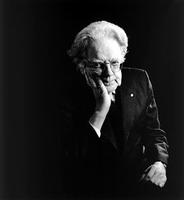Background and History
Governor General's Literary Awards were first presented in 1937 by the Canadian Authors' Association (CAA). The CAA organized the adjudications until 1944, when an independent Awards Board was established. In 1959, the Canada Council undertook the administration of the awards and provided eight prizes of $1,000 each for work in fiction, nonfiction, poetry and drama in both English and French (previous awards had been for works in English only). Also that year, the category of juvenile literature, which had been established in 1946 but was not awarded until 1949, was dropped.
Changes in Prizes and Categories
The cash award was raised to $2,500 in 1965, to $5,000 in 1975, to $10,000 in 1988 and to $15,000 in 2000. In 2007, as part of the celebration of the Canada Council's 50th anniversary, the prize money was increased to $25,000.
In 1971, the Canada Council began appointing two nine-member juries — one Anglophone and one francophone, each of which was overseen by a non-voting chair — drawn from experienced writers, academics and literary critics. New categories have also been added over the years, specifically separate categories for children's literature – text, children's literature – illustration, and translation, all of which were introduced in 1988.
Until 1991, the prizes were presented the year after the award year (e.g., awards for books published in 1960 were presented in 1961). Beginning in 1991, ceremonies were held in the award year itself.
Controversies and Criticisms
Like any prize, the Governor General's Awards have proven to be controversial from time to time. Contemporary judgements do not always stand the test of time, and there is a general complaint that writers have not always won for their best work. The awards have also been criticized for specific omissions (e.g., the failure of Northrop Frye's The Great Code to win an award in 1983). Some winners have also refused to accept the award for political reasons.

 Share on Facebook
Share on Facebook Share on X
Share on X Share by Email
Share by Email Share on Google Classroom
Share on Google Classroom

